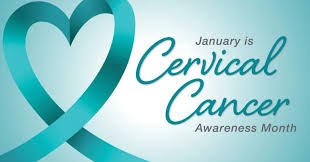Details
A pharmacy (also called drugstore in American English or community pharmacy or chemist in Commonwealth English) is a premises which provides pharmaceutical drugs, among other products. At the pharmacy, a pharmacist oversees the fulfillment of medical prescriptions and is available to counsel patients about prescription and over-the-counter drugs or about health problems and wellness issues. A typical pharmacy would be in the commercial area of a community.
Brick and mortar pharmacies
In most countries, a premises for prescription drugs is subject to legislation; with requirements for storage conditions, staff qualifications, equipment, record keeping (especially of controlled drugs) and other matters, all specified in legislation. It was once the case that pharmacists stayed within the premises compounding/dispensing medications, but there has been an increasing trend towards the use of trained pharmacy technicians,[citation needed] with the pharmacist spending more time communicating with patients. Pharmacy technicians are now more dependent upon automation to assist them in their new role dealing with patients' prescriptions and patient safety issues.
Pharmacies are typically required to have a qualified pharmacist on-duty at all times when they are open. It is also often a requirement for the owner of a pharmacy to be a registered pharmacist, but that is not the case in all jurisdictions: where permitted, many retailers (including supermarkets and mass merchandisers) now include a pharmacy as a department of their store.
Community pharmacies offer a unique added value by building direct relationships with their customers.[citation needed] They are able to provide more personalized, dedicated care to local members of their community and even offer enhanced services such as Medication Therapy Management (MTM), Medication Synchronization, and compounding. With the aid of pharmacy management systems and different integrated technologies, these smaller pharmacies are able to keep up with their large-scale competition.
Online pharmacies
Since about the year 2000, a growing number of online pharmacies have been established worldwide. Many of these pharmacies are similar to community pharmacies, and in fact, many of them are actually operated by brick-and-mortar community pharmacies that serve consumers online and those that walk in their door. The primary difference is the method by which the medications are requested and received. Some customers consider this to be more convenient and private method rather than traveling to a community drugstore where another customer might overhear about the drugs that they take. Internet pharmacies (also known as online pharmacies) are also recommended to some patients by their physicians if they are home-bound.
While most Internet pharmacies sell prescription drugs and require a valid prescription, some Internet pharmacies sell prescription drugs without requiring a prescription.[citation needed] Some customers order drugs from online pharmacies to avoid the "inconvenience" of visiting a doctor, or to obtain medications which their doctors were unwilling to prescribe. However, this practice has been criticized as potentially dangerous, especially by those who feel that only doctors can reliably assess contraindications, risk/benefit ratios, and an individual's overall suitability for use of medication. There also have been reports of such pharmacies dispensing substandard products.[2] Of particular concern with Internet pharmacies is the ease with which people can obtain controlled substances via the Internet without a prescription issued by a doctor/practitioner who has an established doctor-patient relationship.[citation needed] There are instances where an online doctor issues a prescription, for a controlled substance to a "patient" s/he has never met.[citation needed]
By country
In the United States, in order for a prescription for a controlled substance to be valid, it must be issued for a legitimate medical purpose by a licensed practitioner acting in the course of legitimate doctor-patient relationship. The filling pharmacy has a corresponding responsibility to ensure that the prescription is valid. Often, individual state laws outline what defines a valid patient-doctor relationship. The Food and Drug Administration (FDA) is also heavily involved in monitoring internet pharmacies and has issued warnings against several companies who have violated the U.S. Federal Food, Drug, and Cosmetic Act that protects individuals against rogue online pharmacies. In the United States, there has been a push to legalize the importation of medications from Canada and other countries,[citation needed] in order to reduce consumer costs. While in most cases importation of prescription medications violates FDA regulations and federal laws, enforcement is generally targeted at international drug suppliers, rather than consumers. There is no known case of any U.S. citizens buying Canadian drugs for personal use with a prescription, who has ever been charged by authorities.
Canada is home to dozens of licensed Internet pharmacies, many of which sell their lower-cost prescription drugs to U.S. consumers (who must otherwise pay one of the world's highest drug prices).[3] In recent years, many consumers in the US (and in other countries with high drug costs), have turned to licensed Internet pharmacies in India, Israel, and the UK, which often have even lower prices than in Canada.
 Official Website of the Barbados Government
Official Website of the Barbados Government

&size=event-small)